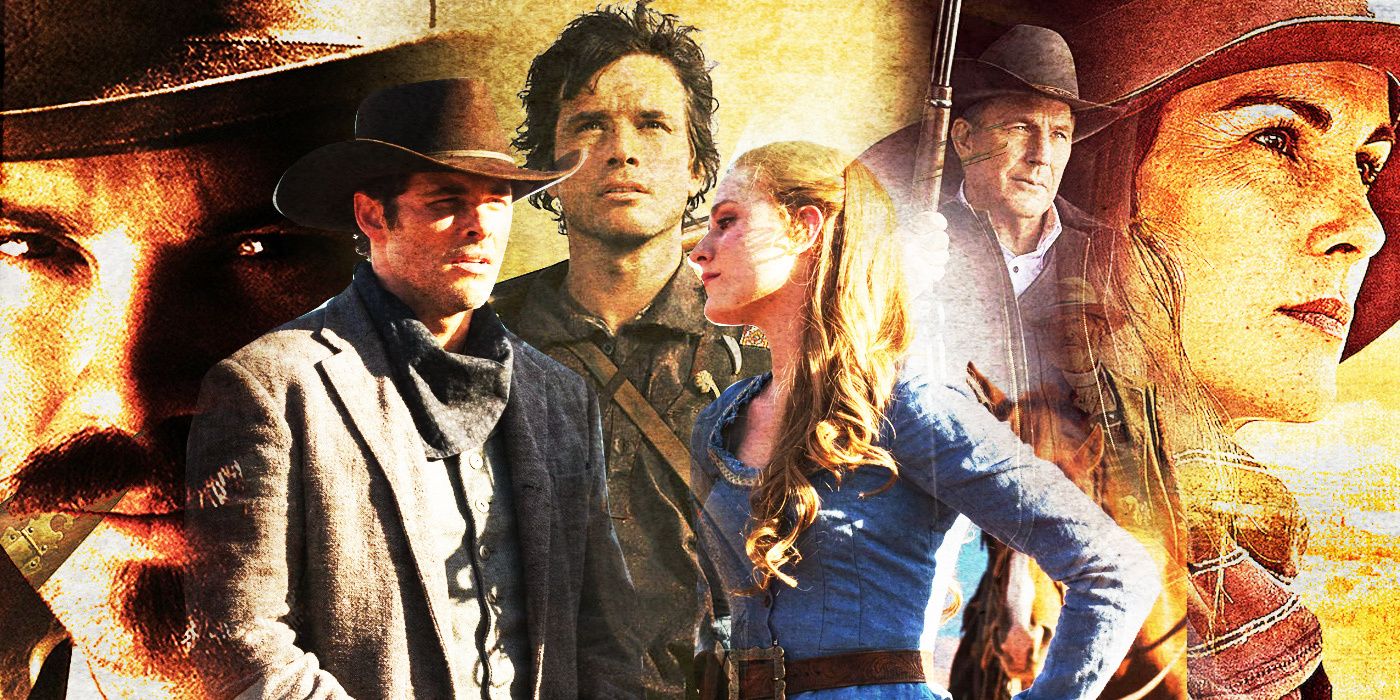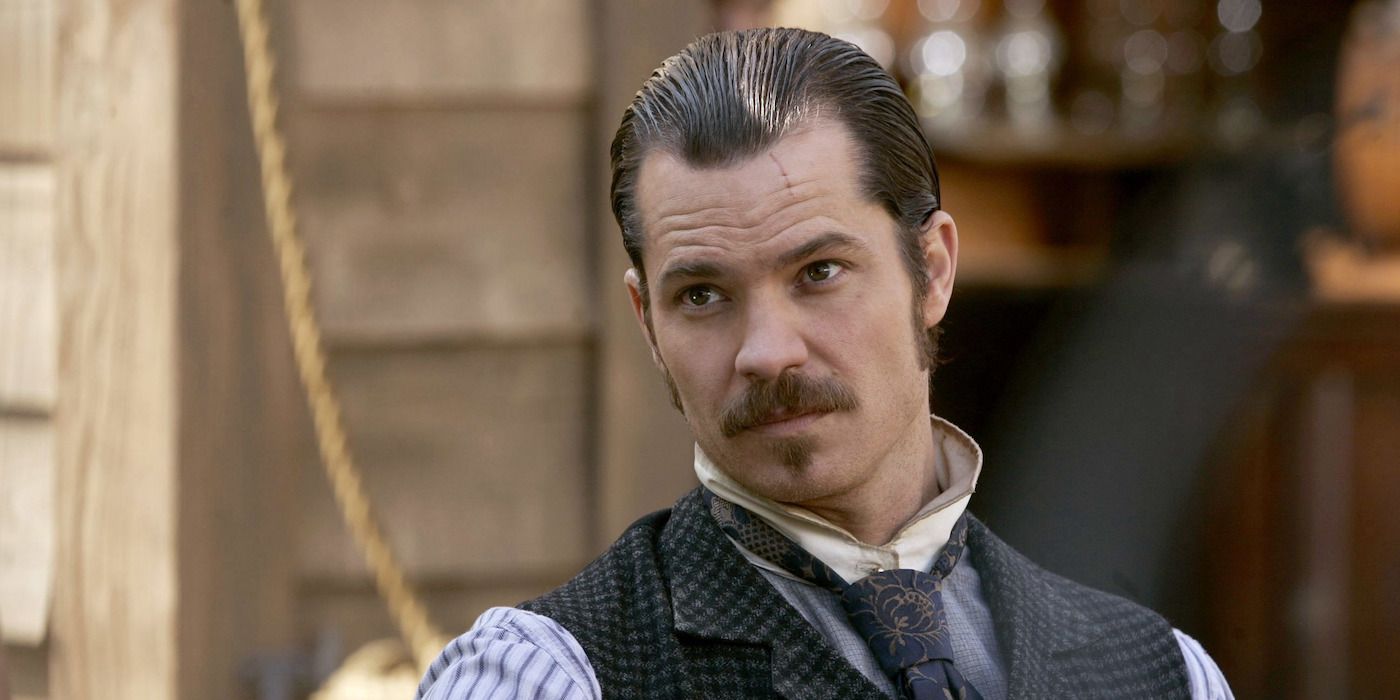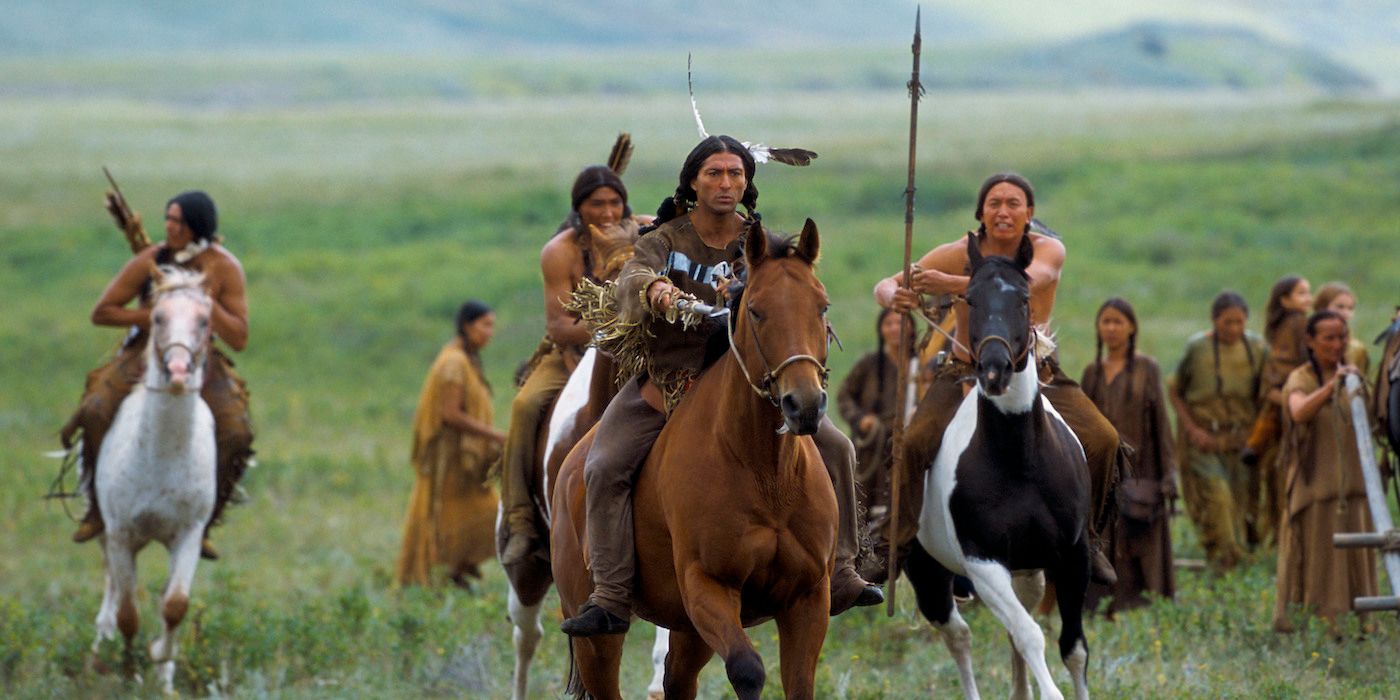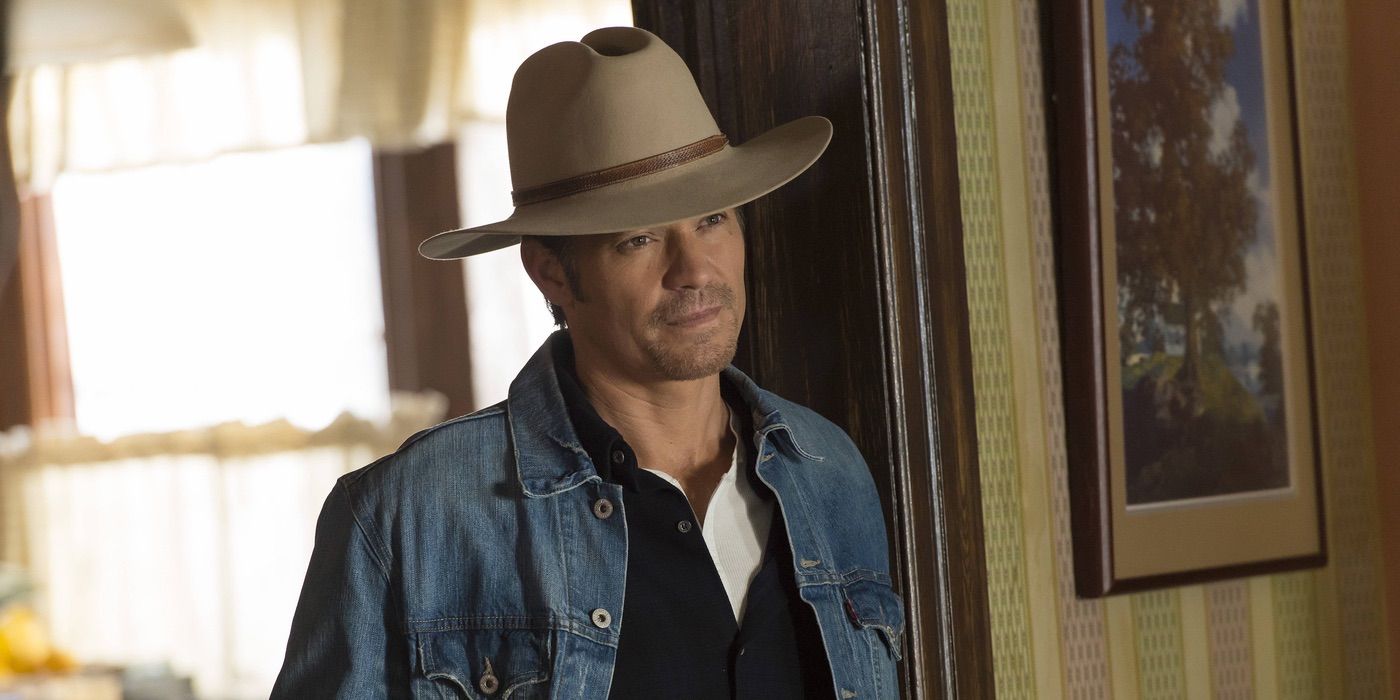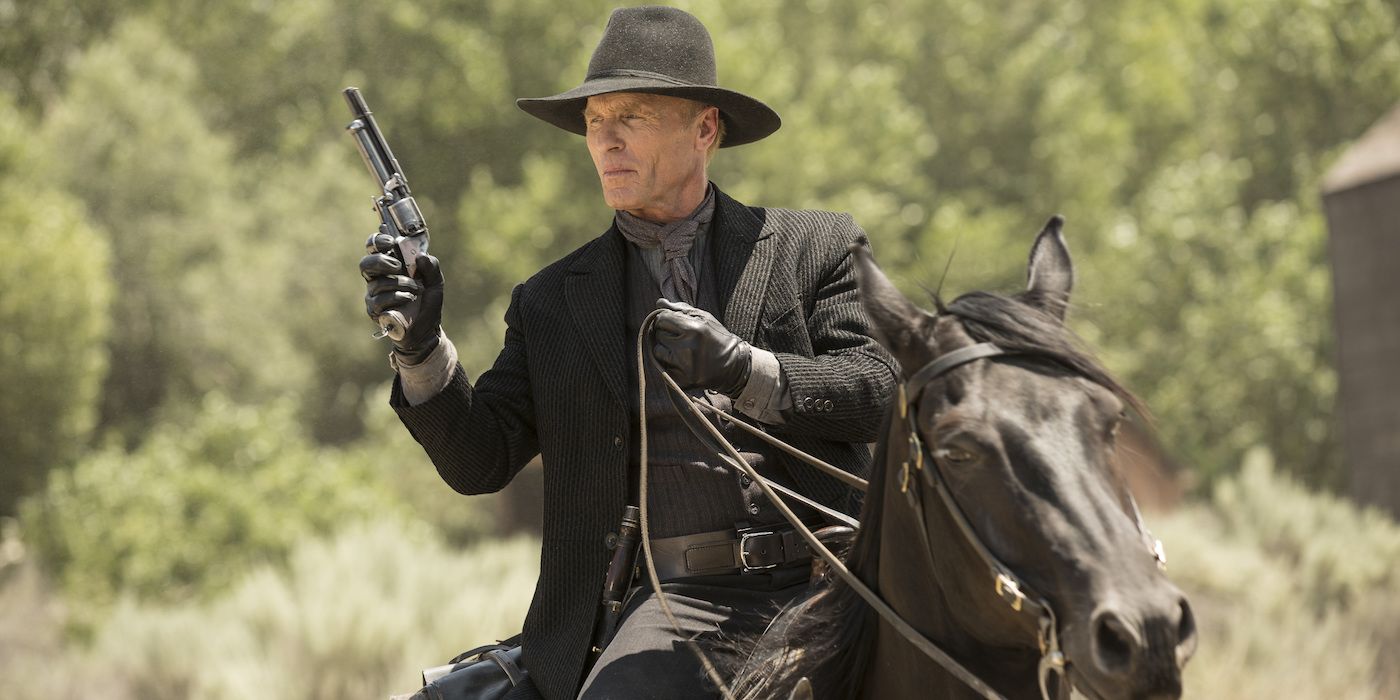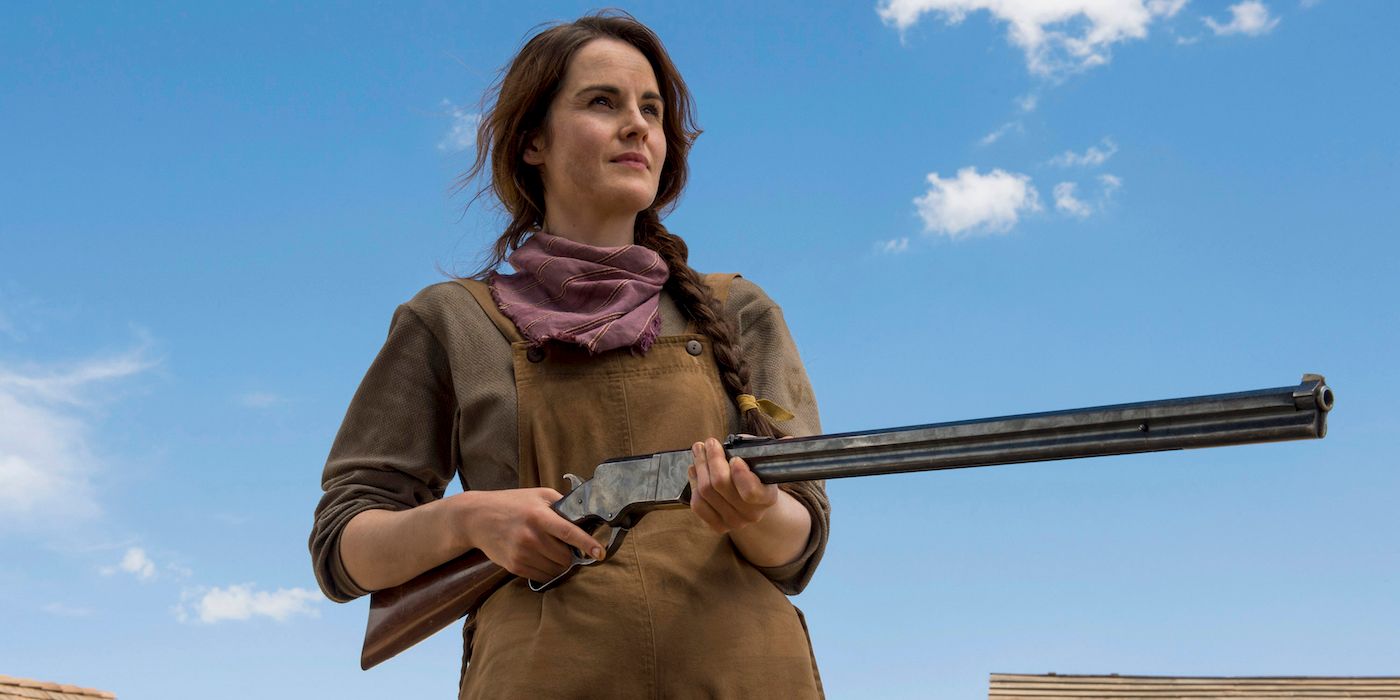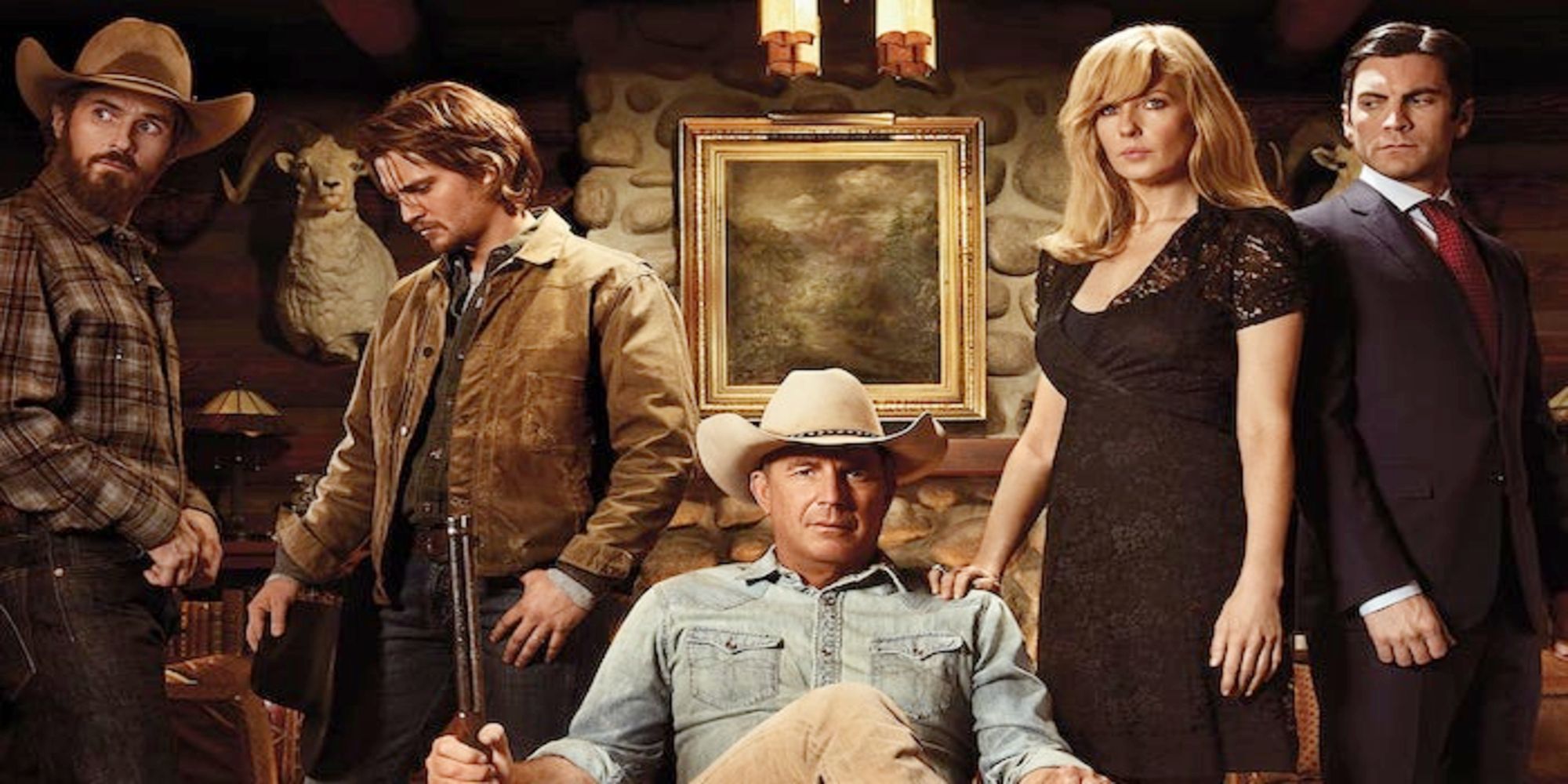Although we’re far from the popularity of TV westerns like Gunsmoke (which ran for an astonishing 20 years), westerns have received a bit of a revival during the Golden Age of Television, helped in part by some fantastic creatives and quite a bit of genre-mixing. 21st century TV westerns often dip into other genres like crime and gangster, even blending sci-fi and fantasy at times. This helped to revive the often overlooked western genre, as well as make it more appealing and relevant to audiences in the new millennium.
But with all this genre-mixing, what does a western look like on TV in the 21st century? It’s hard to imagine a western without sheriffs, lawmen, cowboy hats, horses, gun shoot-outs, and of course the stunning imagery of western America. These images are easy enough to include in myriad TV programs, but westerns also usually debate recurring themes like the struggle between good and wrong, the old and the new, and more. Our protagonists must often toe the line between outlaw and hero, and violence plagues these characters as well as the environments they inhabit. All in all, westerns are about the shaping of America and its personality, and it’s quite clear that we’re continuing to figure that out.
So which westerns in the 21st century can combine the iconic imagery of westerns while also waxing poetic on the state of the country? Here’s what we thought.
Deadwood (2004-2006)
You could hardly make the best TV westerns of the 21st century list without Deadwood. You could hardly make the best TV shows of all time list without Deadwood. Although it was tragically canceled too early, Deadwood took the generic codes of western but cut out the romantic idealism.
Bloody, grimy, and crude, creator David Milch used the real historic town and figures of Deadwood, South Dakota in the late 19th century to mold a portrait of the shaping of America. The main and most intriguing plotlines followed the power and ethical struggle between noble sheriff Seth Bullock and the self-serving Al Swearengen, a saloon owner. Both Timothy Olyphant and Ian McShane gave fine performances that helped to solidify the series within the western canon.
Into the West (2005)
A forgotten and underrated western produced by Steven Spielberg, Into the West is a solid narrative about two intertwined characters and their journeys during American expansion in the early 19th century. Both of their stories begin when Jacob Wheeler (Matthew Settle), a white American from Virginia joins an expedition to the Pacific Ocean and leaves his family behind. He ends up marrying the Lakota Thunder Heart Woman (Tonantzin Carmelo), and the new family must endure the hardships and benefits of a rapidly changing and expanding western America.
Although the miniseries doesn’t touch Spielberg’s Band of Brothers, Into the West is a moving, although very familiar, exploration of America in the 19th century, and touched upon numerous different historical movements and ideas like railroad development, Wounded Knee, the rise of capitalism, the gold rush, and more. It’s catnip for any avid western fan.
Justified (2010-2015)
Although Olyphant made a name for himself in Deadwood, his role as Marshall Raylan Givens in Justified will certainly be his most iconic and identifiable role. A true neo-western, Justified follows Marshall Givens as he moves back to his wild hometown in eastern Kentucky. Throughout the seasons he contends with an old friend turned criminal, Boyd Crowder (played by a charismatic Walton Goggins).
The portrayal of Raylan Givens may be one of the most iconic examples of a western lawman. Although he wears the white cowboy hat and fights for good, Givens consistently serves his own brand of justice outside of the law, usually through violent means. These actions question his morality and often lead to acts of controversial vigilantism. Although the series draws heavily from the crime genre, these characters and small-town settings place Justified clearly within the western genre.
Westworld (2016-Present)
Alright, so Westworld only really counts as a western for the first two seasons, but those first two seasons are so great that it must have a place in the best TV westerns of the 21st century. Set in the future, Westworld reimagines a theme park that allows guests to realistically play "Cowboys and Indians" in their own western narrative. The other characters are robots designed to look and act exactly like humans, giving a new definition to the idea of role-play.
One of the most important aspects of any western is its mythologizing power. The western genre helped to create the nation- and identity-defining myths that help continue its popularity. Through its combination of the western and sci-fi, Westworld’s first two seasons worked to demythologize the ideas of American agency and individualism, while still being wildly entertaining and engaging.
Godless (2017)
Before hitting it big with The Queen’s Gambit, Scott Frank first debuted on Netflix with Godless, a miniseries about a runaway hiding from his mentor and previous gang leader. While the start of the series doesn’t seem like anything particularly different from every other western, Frank changes the narrative archetype by having the runaway hide in a town almost entirely made up of women. Giving women more of a driven narrative, Frank cuts into the underlying misogyny inherent in a lot of previous westerns.
The series is bolstered by a handful of strong performances, including Michelle Dockery as our strong heroine, a wonderful Thomas Brodie-Sangster, and a surprisingly terrifying Jeff Daniels as our villain. While it doesn’t reach the storytelling highs of The Queen’s Gambit, Godless still proves that Frank is in command of his craft with this notable addition to the western genre.
Yellowstone (2018-Present)
Yellowstone, otherwise known as Middle America’s answer to Succession, has slowly garnered a huge fanbase thanks to the help of creator Taylor Sheridan. Sheridan helped to establish the neo-western genre in the 21st century with films like Sicario, Hell or High Water, and Wind River.
Yellowstone follows the Dutton family led by patriarch Kevin Costner. Although the series could use a bit more narrative heft here and there, its themes and storylines are incredibly engaging, and could easily be as relevant in the 21st century as they are in the 19th. The Dutton family owns the largest cattle ranch in the country and has for generations, helping to shape the surrounding area in their image as their wealth and influence grew. Now, they must contend with a new and more aggressive tribal chief of the neighboring Native American reservation, as well as encroaching land developers and political crises.
It’s a must-see for any western lover, as its slow-burning narratives, great ensemble cast, and stunning landscapes help to make it irresistible for any genre fanatic.

